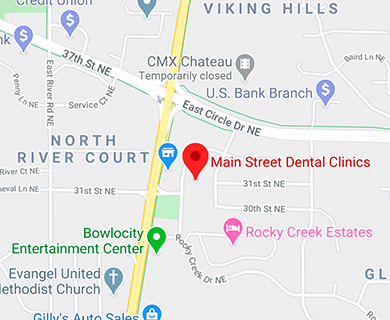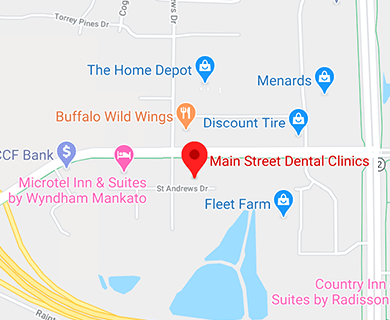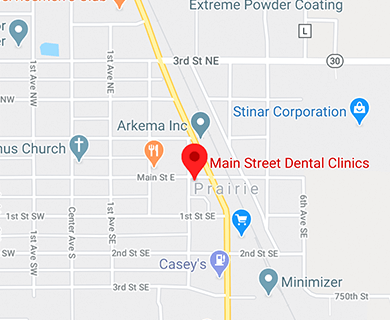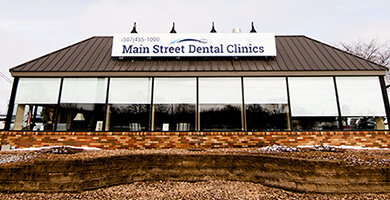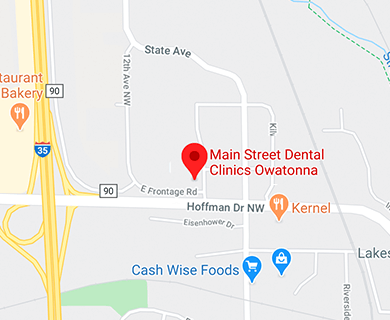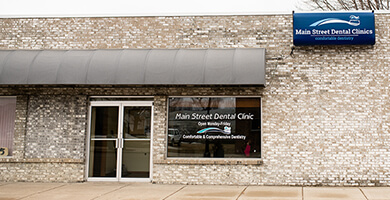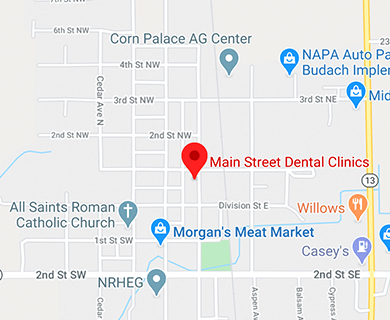July 20th, 2022

That ache in your head may stem from your jaw. If your jaw falls out of alignment, you could have temporomandibular joint disorder, or TMD.
It's not clear what causes TMD. Obesity may factor in. Stress and pressure on the jaw may also contribute. A misaligned bite (that is, where your upper and lower teeth don't fit together when you close your mouth) may cause TMD symptoms, too.
TMD can affect your life and your health by making it painful to eat and hard to sleep. Some people find the nagging pain difficult to bear.
Symptoms of TMD include:
- Recurring headaches with no other cause
- Pain along and behind your ears
- Pain in your cheeks or lower face
- Clicking noises when you talk or chew
- Tired or sore jaw muscles after eating
- Limited jaw movement
If you experience the symptoms listed here, make an appointment with our office. We’ll take an X-ray to look at your bite, and determine if TMD could be the culprit. If you have TMD we can offer a number of treatments, including:
- Relaxation and stress reduction techniques
- Pain reduction recommendations, which might involve visualization or medication
- Jaw joint exercises that can help reduce stress and improve your alignment
Left untreated, TMD headaches and other symptoms can become quite severe. If you suffer the symptoms of TMD, you do not have to live in pain. Make an appointment at our Rochester office to learn how we can reduce your pain and restore comfort to your life.
July 20th, 2022

That ache in your head may stem from your jaw. If your jaw falls out of alignment, you could have temporomandibular joint disorder, or TMD.
It's not clear what causes TMD. Obesity may factor in. Stress and pressure on the jaw may also contribute. A misaligned bite (that is, where your upper and lower teeth don't fit together when you close your mouth) may cause TMD symptoms, too.
TMD can affect your life and your health by making it painful to eat and hard to sleep. Some people find the nagging pain difficult to bear.
Symptoms of TMD include:
- Recurring headaches with no other cause
- Pain along and behind your ears
- Pain in your cheeks or lower face
- Clicking noises when you talk or chew
- Tired or sore jaw muscles after eating
- Limited jaw movement
If you experience the symptoms listed here, make an appointment with our office. We’ll take an X-ray to look at your bite, and determine if TMD could be the culprit. If you have TMD we can offer a number of treatments, including:
- Relaxation and stress reduction techniques
- Pain reduction recommendations, which might involve visualization or medication
- Jaw joint exercises that can help reduce stress and improve your alignment
Left untreated, TMD headaches and other symptoms can become quite severe. If you suffer the symptoms of TMD, you do not have to live in pain. Make an appointment at our Rochester office to learn how we can reduce your pain and restore comfort to your life.
July 13th, 2022

A study conducted in Washington State in 2004 and another conducted in Madrid, Spain in 2012 both reported findings that support a direct relationship between parents’ dental fear and their child’s fear of the dentist.
The Washington study examined dental fear among 421 children ages 0.8 to 12.8 years old. They were patients at 21 different private pediatric dental practices in western Washington state. The Spanish study observed 183 children between the ages of seven and 12 as well as their parents.
The Washington study used responses from both parents and the Dental Sub-scale of the Child Fear Survey Schedule. The survey consisted of 15 questions, which invited answers based on the child’s level of fear. The scale was one to five: one meant the child wasn’t afraid at all, and five indicated he or she was terrified. The maximum possible points (based on the greatest fear) was 75.
Spanish researchers found a direct connection between parental dental fear levels and those among their kids. The most important new discovery from the Madrid study was that the greater the fear a father had of going to the dentist, the higher the level of fear among the other family members.
Parents, but especially fathers, who feared dental procedures appeared to pass those fears along to every member of the family. Parents can still have some control over fear levels in their children. It is best not to express your own concerns in front of kids; instead, explain why going to the dentist is important.
Dr. Hanson, Dr. Campbell, Dr. Schafer, Dr. Fabian, Dr. Burmeister, Dr. Kess, Dr. Stenzel, and Dr. Swedeh. and our team work hard to make your child’s visit at our Rochester office as comfortable as possible. We understand some patients may be more fearful than others, and will do our best to help ease your child’s anxiety.
July 13th, 2022

A study conducted in Washington State in 2004 and another conducted in Madrid, Spain in 2012 both reported findings that support a direct relationship between parents’ dental fear and their child’s fear of the dentist.
The Washington study examined dental fear among 421 children ages 0.8 to 12.8 years old. They were patients at 21 different private pediatric dental practices in western Washington state. The Spanish study observed 183 children between the ages of seven and 12 as well as their parents.
The Washington study used responses from both parents and the Dental Sub-scale of the Child Fear Survey Schedule. The survey consisted of 15 questions, which invited answers based on the child’s level of fear. The scale was one to five: one meant the child wasn’t afraid at all, and five indicated he or she was terrified. The maximum possible points (based on the greatest fear) was 75.
Spanish researchers found a direct connection between parental dental fear levels and those among their kids. The most important new discovery from the Madrid study was that the greater the fear a father had of going to the dentist, the higher the level of fear among the other family members.
Parents, but especially fathers, who feared dental procedures appeared to pass those fears along to every member of the family. Parents can still have some control over fear levels in their children. It is best not to express your own concerns in front of kids; instead, explain why going to the dentist is important.
Dr. Hanson, Dr. Campbell, Dr. Schafer, Dr. Fabian, Dr. Burmeister, Dr. Kess, Dr. Stenzel, and Dr. Swedeh. and our team work hard to make your child’s visit at our Rochester office as comfortable as possible. We understand some patients may be more fearful than others, and will do our best to help ease your child’s anxiety.







